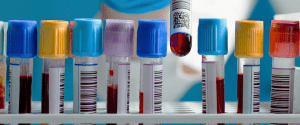Painful behavior: affective pain hurts your motivation

Affective pain leads to inhibition of dopamine neurons decreasing motivation, but it can be restored.
Washington University in St. Louis (MI, USA) researchers have uncovered the neuronal circuitry in the brain of rodents that may play a role in mediating pain-induced anhedonia – a decrease in motivation to perform reward-driven behaviors. The study, led by Jose Morón-Concepcion, demonstrated the ability to change the activity of this circuit and restore levels of motivation in a pre-clinical pain model, a valuable discovery for mental health research and potential therapeutic development.
Affective pain is the negative emotional component of pain. Anhedonia, a characteristic of affective pain, is a common feature of depression, and may also increase vulnerability to opioid use disorder. Explaining the research landscape surrounding pain, Moron-Concepcion noted that, “pain has primarily been studied at peripheral sites and not in the brain, with a goal of reducing or eliminating the sensory component of pain. Meanwhile, the emotional component of pain and associated comorbidities such as depression, anxiety, and lack of ability to feel pleasure that accompany pain has been largely ignored.”
This study sought to uncover the brain circuitry that was involved in this change of behavior in affective pain, which Morón-Concepcion’s team has observed previously. Their earlier studies revealed that rats in inflammatory pain were more likely to consume higher doses of heroin than the rats that were not. Additionally, the rats exhibited a decrease in motivation for sugar tablet rewards.
How do you measure pain tolerance? Researchers have developed a blood test that can assess the severity of pain, allowing for a more objective view of a currently subjective diagnosis.
Dopamine neuronal activity in the ventral tegmental area, responsible for processing rewards and controlling motivated behavior, was measured in rats while they pressed a lever with their front paw to receive a sugar tablet reward. To assess the impact of pain on the behavior of the rat and the activity of their dopamine neurons, researchers injected either saline (control) or a solution that produces local inflammation (pain) in the rat’s hind paw.
Forty-eight hours after injection, the researchers noted that rats suffering pain exhibited less desire to press the lever to obtain the sugary reward, demonstrating a decrease in motivation. Furthermore, the monitored dopamine neurons displayed lower activity.
The uncovered biological process responsible was that pain led to activation of rostromedial tegmental nucleus cells. These cells produced GABA which has a strong inhibitory effect on the rate of firing in dopamine neurons of the ventral tegmental area. Consequently the pain response’s impact on dopamine activity leads to the rats not being motivated, even by sweet treats.
The team utilized chemogenetics in order to selectively activate specific dopamine neuron populations in the ventral tegmental area upon administration of small-molecule ligands. They found this to be sufficient to restore the motivation of the rats who would then press the levers to receive the sweet stimuli even whilst still in pain.
Expanding on this, the researchers reversed the high level of GABA production by cells in the rostromedial tegmental nucleus during the response to pain. The rats were then able to feel pleasure whilst still in pain, exemplified by their choice of a sucrose solution over water as a reward. Whilst this is a choice that many of us would agree with, when we are in pain it can take a toll on our mental health, dampening the motivation for reward and making these choices less straightforward.
“It is fulfilling to be able to show pain patients that their mental health and behavioral changes are as real as the physical sensations, and we may be able to treat these changes someday,” added study author Meaghan Creed (Washington University in St. Louis).
